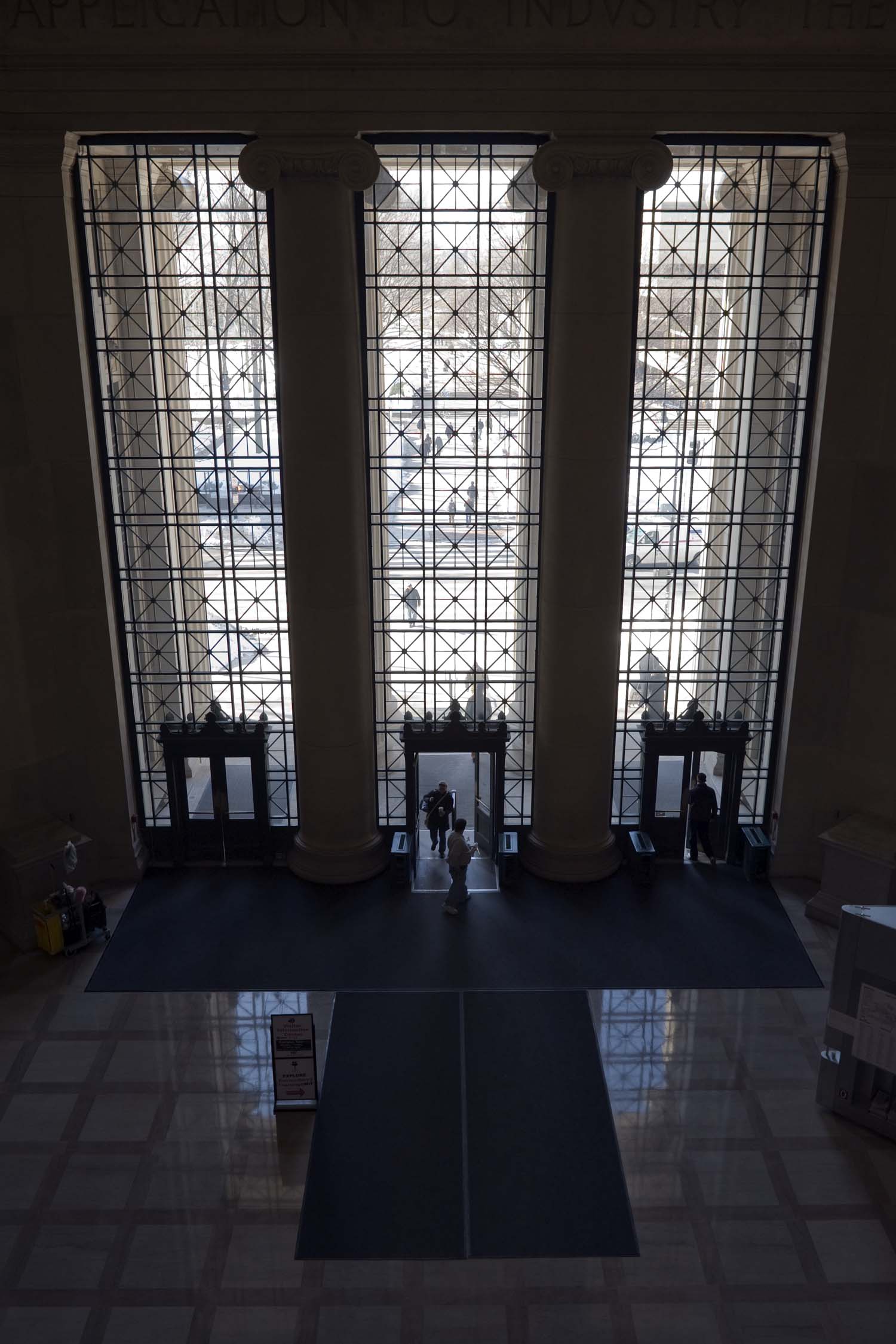We live in a scientific golden age. Never has the pace of discovery been so rapid, the range of achievements so broad, and the changing nature of our understanding so revolutionary. Science today has extraordinary powers. It reveals fundamental phenomena of our universe, catalyzes new technologies, powers new businesses, fosters new industries, and improves lives.
Op-Eds / Essays
“To make our economy grow, sell more goods to the world and replenish the work force, we need to restore manufacturing – not the assembly-line jobs of the past, but the high-tech advanced manufacturing of the future.” - Susan Hockfield
February 10, 2017
The integration of the life sciences, physical sciences, mathematics, engineering, and information technology—often referred to as Convergence—has emerged in recent years as a powerful approach to research with the potential to lead to medical and technological breakthroughs.
June 24, 2016
For decades, scientists have called for more collaboration between the life and physical sciences, and in the past 5 years, we have been among those calling for a new national research strategy—one we call “convergence”—that would integrate engineering, physical, computational, and mathematical sciences with biomedical science.
January 22, 2015
DAVOS – This year’s World Economic Forum meeting in Davos, Switzerland, addresses threats to geopolitical stability and human life, and seeks ways to accelerate the design of more effective political, economic and technological tools to address them.
April 28, 2014
Imagine a world where nanoparticle “smart bombs” selectively destroy cancer cells. Where batteries made by nontoxic viruses unleash the full potential of alternative energy. And where synthetic biofuels power our cars and free us from fossil fuels.
August 29, 2011
The United States became the world's largest economy because we invented products and then made them with new processes. With design and fabrication side by side, insights from the factory floor flowed back to the drawing board. Today, our most important task is to restart this virtuous cycle of invention and manufacturing.
March 14, 2011
"THE FIRST step in winning the future is encouraging American innovation,'' President Obama said to a concerned nation in his State of the Union address. Our nation has a remarkable record of rising from the ashes of crisis, and education and research in science and engineering have often led those revivals of prosperity and morale.
August 14, 2010
With the nation in the midst of the most job-killing recession in many decades, the US Senate should plant the seeds for the next generation of job-creating industries by reauthorizing the America COMPETES Act.
October 19, 2009
Of the nine people who shared this year's Nobel Prizes in chemistry, physics and medicine, eight are American citizens, a testament to this country's support for pioneering research. But those numbers disguise a more important story. Four of the American winners were born outside of the United States and only came here as graduate or post-doctoral students or as scientists.
August 26, 2009
Senator Kennedy, like his late brothers, inspired many of us to pursue lives dedicated to improving the world. As a public servant he was a tireless, eloquent and effective advocate for equality, justice and opportunity – ideals on which this country was founded.
February 27, 2009
U.S. Federal investments in basic research transformed life and commerce in the 20th century. They sent us to the Moon and beyond, revolutionized communications, helped to feed the planet, reinvented work processes, and drove the remarkable economic growth of the post-1950s era in the United States.
February 13, 2009
Congress has agreed on a package of short-term stimulus; now it must turn its attention to the next step. Innovation-based industries arising from scientific research have been central to the remarkable rise in US living standards since World War II.
September 11, 2008
Almost 70 years ago, as Germany invaded France, President Franklin D. Roosevelt received an urgent visit from Vannevar Bush, then chairman of the National Advisory Committee on Aeronautics and formerly vice president and dean of engineering at the Massachusetts Institute of Technology.
April 28, 2008
In 1971, President Nixon launched the “War on Cancer,” with the optimistic goal of defeating the disease in eight years with $100 million. More than 35 years and $79 billion later, the war is far from won. While 2002 marked the first-ever yearly decline in U.S. cancer deaths, more than 40 percent of Americans will still contract cancer in their lifetime.
April 14, 2008
In the new movie “21,” a fictionalized version of how several former MIT students used mathematical skill to win big at blackjack, being “pretty good with numbers” looks like a quick way to get rich in Las Vegas.
April 07, 2008
Boston Magazine has ranked MIT’s work on energy and the environment as #2 on its list of “61 Best New Things About Boston.” It’s unusual praise for MIT; our research is more often noticed in academic journals.
March 31, 2008
In Mumbai last November, I addressed a conference of India’s leading CEOs. Their interests had a single focus: What makes the American system of higher education such a powerful force for U.S. prosperity? It was not an idle question, as India builds economic momentum.
March 03, 2008
Dear Chairman Baucus and Senator Grassley:
December 13, 2006
On July 20, 1969, the United States reached the moon, beating the decade's-end goal set by President John F. Kennedy. Many saw the original timetable as too ambitious.
October 29, 2006
In a modern economy, innovation is the key to economic growth, and Massachusetts has enjoyed a great run for more than 50 years. While more than half of US economic growth since World War II has come from technological and related innovation, in Massachusetts that share has been even larger.
February 12, 2005
Harvard President Lawrence Summers' recent comments about possible causes of the under-representation of women in science and engineering have generated extensive debate and discussion-much of which has had the untoward effect of shifting the focus of the debate to history rather than to the future.

